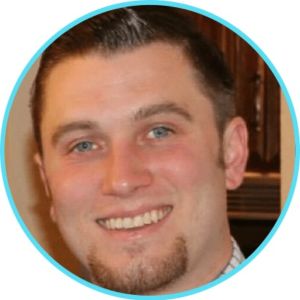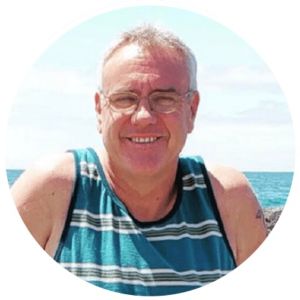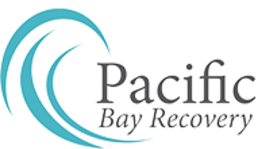






Pacific Bay Recovery
Verified Center
This provider's information has been quality-checked by Recovery.com's Research Team for accuracy and completeness, including center verification through appropriate third-party organizations.
Treatment Focus
This center treats substance use disorders and co-occurring mental health conditions. Your treatment plan addresses each condition at once with personalized, compassionate care for comprehensive healing.
Primary Level of Care
Offering intensive care with 24/7 monitoring, residential treatment is typically 30 days and can cover multiple levels of care. Length can range from 14 to 90 days typically.
Treatment Focus
This center treats substance use disorders and co-occurring mental health conditions. Your treatment plan addresses each condition at once with personalized, compassionate care for comprehensive healing.
Primary Level of Care
Offering intensive care with 24/7 monitoring, residential treatment is typically 30 days and can cover multiple levels of care. Length can range from 14 to 90 days typically.
Provider's Policy
We are in-network with major insurance providers and accept most PPO plans. Please call for a no obligation benefit verification so you understand exactly what your out of pocket cost will be. We do not accept Medicaid or MediCal.
Pacific Bay Recovery
Pacific Bay Recovery
About Pacific Bay Recovery
From the comfort of their homelike residences outside downtown San Diego, Pacific Bay Recovery helps clients experience freedom from the physical, emotional, and spiritual pain diminishing their quality of life. Their center offers detox, inpatient rehabilitation, and intensive outpatient programs for addiction and co-occurring mental health disorders, each of which can be tailored to meet client needs. Their programs typically follow a progression of 7-day medical detox, 90-day inpatient treatment, and 21-months outpatient treatment.
Positive Change through a Multi-Pronged Approach
Pacific Bay Recovery provides personalized and thorough care by examining clients from a medical, musculoskeletal, cognitive, neurocognitive, and psychological standpoint. Each therapy plan uses a holistic approach that goes beyond merely treating the symptoms of addiction; they aim to identify and address the root causes of addiction. Their strategic, comprehensive approach integrates traditional therapies like cognitive behavioral therapy (CBT) and acceptance and commitment therapy (ACT) with alternative methods like nutritional counseling, art therapy, and outdoor activities. As a result, clients develop healthier behaviors, increase their motivation for recovery, and effectively manage the physical aspects of addiction.
Better Outcomes for Co-Occurring Disorders
Pacific Bay Recovery believes treating behavioral health issues with substance abuse rehab concurrently is the best method to overcome either. They specialize as a dual-diagnosis treatment center aiding clients who suffer with drug, alcohol, and other addictions that are co-existing with mental health issues like anxiety, depression, post-traumatic stress disorder (PTSD), bipolar disorder, trauma, and more. Their compassionate staff provide guidance and support so that clients can begin to heal from their root issues through individual therapy, group therapy, medication management, and holistic therapies such as yoga and meditation.
Equipped with Tools for Long-Term Sobriety
Clients receive weekly relapse prevention training, providing them with the tools they need to remain sober in the outside world. Pacific Bay Recovery teaches their clients how to handle triggers they’ll encounter at work and in their social lives, and how to find support. When clients leave their facility, they have a toolbox of skills to use and a monthly alumni group that helps them remain sober.
A Comfortable and Peaceful Home for Healing
Pacific Bay Recovery features private and semi-private rooms, providing comfort and privacy for each patient. Their serene setting with a pool and beautiful outdoor spaces is a peaceful environment conducive to healing. Additionally, they offer gourmet meals prepared by professional chefs, integrating nutritious and delicious food into recovery. The facility also showcases a fitness center, yoga and meditation sessions, and holistic therapies such as acupuncture, cupping, and massage to support a well-rounded approach to wellness and recovery.

Highlights from the Center
Highlights
These highlights are provided by and paid for by the center.
Holistic Approach
Perfect for Professionals
Private Rooms Available
Tech Friendly
Center Overview
Treatment Focus
This center treats substance use disorders and co-occurring mental health conditions. Your treatment plan addresses each condition at once with personalized, compassionate care for comprehensive healing.
Joint Commission Accredited
The Joint Commission accreditation is a voluntary, objective process that evaluates and accredits healthcare organizations (like treatment centers) based on performance standards designed to improve quality and safety for patients. To be accredited means the treatment center has been found to meet the Commission's standards for quality and safety in patient care.
Insurance Accepted
Cash Pay Rates
Estimated Cash Pay Rate
Center pricing can vary based on program and length of stay. Contact the center for more information. Recovery.com strives for price transparency so you can make an informed decision.
Meet Your Care Team

Dr. Michael S. Duffy
Medical Director, Founder, CEO
D.O.

Dr. Corey Scott
Assistant Medical Director
PHARM. D., AAHIVP, APH

Greg Philips
Lead Counselor
CADC-II

Dr. Susan Swartz
Clinical Psychologist
PSY. D

Dr. Deborah E. Kats
Clinical Psychologist
PYS. D




Levels of Care






Your Care Options
Specializations
Prescription Drugs
It's possible to abuse any drug, even prescribed ones. If you crave a medication, or regularly take it more than directed, you may have an addiction.
Depression
Symptoms of depression may include fatigue, a sense of numbness, and loss of interest in activities. This condition can range from mild to severe.
Co-Occurring Disorders
A person with multiple mental health diagnoses, such as addiction and depression, has co-occurring disorders also called dual diagnosis.
Drug Addiction
Drug addiction is the excessive and repetitive use of substances, despite harmful consequences to a person's life, health, and relationships.
Opioids
Opioids produce pain-relief and euphoria, which can lead to addiction. This class of drugs includes prescribed medication and the illegal drug heroin.
Holistic
A non-medicinal, wellness-focused approach that aims to align the mind, body, and spirit for deep and lasting healing.
Professionals
Busy, high-ranking professionals get the personalized treatment they need with greater accommodations for work, privacy, and outside communication.
Alcohol
Using alcohol as a coping mechanism, or drinking excessively throughout the week, signals an alcohol use disorder.
Who We Treat
Veterans
Patients who completed active military duty receive specialized treatment focused on trauma, grief, loss, and finding a new work-life balance.
Men and Women
Men and women attend treatment for addiction in a co-ed setting, going to therapy groups together to share experiences, struggles, and successes.
Young Adults
Emerging adults ages 18-25 receive treatment catered to the unique challenges of early adulthood, like college, risky behaviors, and vocational struggles.
Executives
Executive treatment programs typically directly support the needs of people who manage businesses and may provide flexible schedules and office space to allow work during treatment.
Midlife Adults
For adults ages 40+, treatment shifts to focus on the unique challenges, blocks, and risk factors of their age group, and unites peers in a similar community.
Mild Disabilities
Adults with mild physical or intellectual disabilities receive treatment catered to their specific needs in a safe and clinically supportive environment.
Older Adults
Addiction and mental health treatment caters to adults 55+ and the age-specific challenges that can come with recovery, wellness, and overall happiness.
Approaches
Personalized Treatment
The specific needs, histories, and conditions of individual patients receive personalized, highly relevant care throughout their recovery journey.
Bio-Medical
A philosophy focusing on the biomechanics behind mental health disorders, using prescribed medications as a supplement to behavioral therapy.
Holistic
A non-medicinal, wellness-focused approach that aims to align the mind, body, and spirit for deep and lasting healing.
Evidence-Based
A combination of scientifically rooted therapies and treatments make up evidence-based care, defined by their measured and proven results.
Therapies
Mindfulness-Based Cognitive Therapy
MBCT combines mindfulness practices—like meditation—with cognitive therapy techniques to help patients work through negative thought patterns.
Seeking Safety
Not looking to the past, patients improve their present circumstances. They work toward safety without detailing traumatic events.
Stress Management
Patients learn specific stress management techniques, like breathing exercises and how to safely anticipate triggers.
Spiritual Care
Tending to spiritual health helps treatment become more effective, allowing patients to better cope with their emotions and rebuild their spiritual wellbeing.
Physiotherapy
Also called physical therapy, this approach includes exercise and various medical treatments for injury, pain, and disease.
1-on-1 Counseling
Patient and therapist meet 1-on-1 to work through difficult emotions and behavioral challenges in a personal, private setting.
Family Therapy
Family therapy addresses group dynamics within a family system, with a focus on improving communication and interrupting unhealthy relationship patterns.
Conditions We Treat
Anxiety
Anxiety is a common mental health condition that can include excessive worry, panic attacks, physical tension, and increased blood pressure.
Depression
Symptoms of depression may include fatigue, a sense of numbness, and loss of interest in activities. This condition can range from mild to severe.
Bipolar
This mental health condition is characterized by extreme mood swings between depression, mania, and remission.
Substances We Treat
Cocaine
Cocaine is a stimulant with euphoric effects. Agitation, muscle ticks, psychosis, and heart issues are common symptoms of cocaine abuse.
Prescription Drugs
It's possible to abuse any drug, even prescribed ones. If you crave a medication, or regularly take it more than directed, you may have an addiction.
Benzodiazepines
Benzodiazepines are prescribed to treat anxiety and sleep issues. They are highly habit forming, and their abuse can cause mood changes and poor judgement.
Ecstasy
Ecstasy is a stimulant that causes intense euphoria and heightened awareness. Abuse of this drug can trigger depression, insomnia, and memory problems.
Co-Occurring Disorders
A person with multiple mental health diagnoses, such as addiction and depression, has co-occurring disorders also called dual diagnosis.
Psychedelics
Hallucinogenic drugs—like LSD—cause euphoria and increased sensory experiences. When abused, they can lead to depression and psychosis.
Drug Addiction
Drug addiction is the excessive and repetitive use of substances, despite harmful consequences to a person's life, health, and relationships.
Languages
Aftercare
Care Designed for Your Needs
Personal Amenities
Amenities
Special Considerations
Healthy Meals are provided
Great food meets great treatment, with providers serving healthy meals to restore nutrition, wellbeing, and health.
Activities
Yoga
Yoga is both a physical and spiritual practice. It includes a flow of movement, breathing techniques, and meditation.
Off-Site Activities
What people are saying
Treatment
5.0
Accommodations
5.0
Food & Nutrition
5.0
Value
5.0
Jen V
Treatment in 2022 • (60 days) • Reviewed 04/04/23
Former Client
•CPA
•US






